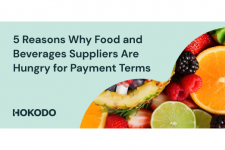Nestlé boss praises higher food prices and speculation

Ceo Paul Bulcke said that higher food prices would help to improve food security by encouraging farmers to invest in food production and so boost supply.
He also claimed that food price speculation had a positive influence on global food markets. “It’s become common to bash people in these [financial] markets,” he said. “But futures markets are a fundamental management tool.v
Price speculation was the symptom of food scarcity not its cause, Bulcke argued. "When agents take market positions, that reduces volatility and volatility is a negative factor. Speculation has helped volatility but does not affect trends in prices, which is a longer term factor.”
One of the key limiting factors threatening food security – as well as political and social stability – was water, he warrned.
Massive food shortages
In his speech, ‘Water – the linchpin of food security’, he urged industry, government and other stakeholders to act decisively to mitigate the massive food shortages that water scarcity would cause within the next 15–20 years.
“It is anticipated that there will be up to 30% shortfalls in global cereal production by 2030 due to water scarcity,” said Bulcke. “This is a loss equivalent to the entire grain crops of India and the United States combined. Resource shortages lead to price increases and volatility.”
Unless action was taken, consumers could face price rises of 200%. “Higher prices for staple cereals are not so much of a problem for the west, or for most people in Europe. But a price increase of more than 200% will certainly be felt when you have to spend 40 to 60% of your income on food, mostly staple food.”
Securing supplies of fresh water would be vital if food companies were to continue to produce enough affordable, high quality food for the rapidly rising global population.
“There will be a further 2.3bn people on the planet by 2050, adding to existing demand for food and energy,” he said.
“It is only by working together with policymakers, civil society, agriculture and other stakeholders at local and international levels that we can develop effective, coherent and concrete action.”
More effective international leadership
Bulcke said Nestlé had acted to put water on the political agenda but urged more effective international leadership. “We would like to see more governance of governments – more of a long-term perspective. Politicians are adopting a shorter and shorter time frame. Companies like ours should take a longer perspective.”
During the panel debate after the lecture, Carl Atkin, co-founder of international agri-business management consultancy KinnAgri, backed the call for more effective leadership.
“We don’t have effective multinational strategies to tackle the challenge of water shortage,” he said. “We need better international leadership and co-ordination on water. Difficult long-term decisions are often pushed into the long grass.”
Professor Tim Benton, of Leeds University and champion of the UK Global Food Security Programme, said a fundamental change of attitude was needed.
“I despair [of resolving this problem] until we can get to the point where we think; this is not our water, it is our children’s and our grandchildren’s water.”
That would mean using water wisely and not eating too much food, he added.
Neither would global warming and increased rainfall boost the supply of water, he said. “Global warming will lead to less water not more water because of water run off.”





















